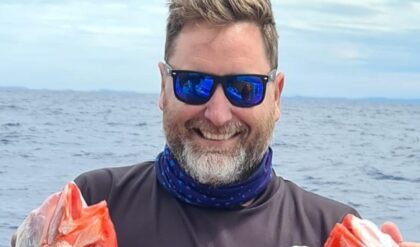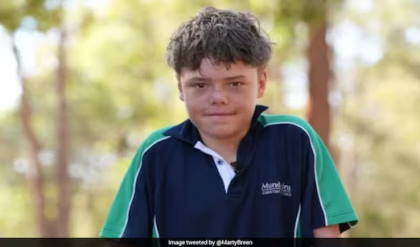Since 1999, Law & Order: SVU has consistently produced episodes in which viewers emotionally connect with both the victims and the police officers working in the Special Victims Unit. Olivia Benson (Mariska Hargitay), in particular, pulls at viewers’ heartstrings as she connects with victims, especially children. Benson’s ability to connect with victims is central to the show, whether audiences are in Season 1 or Season 25, and is part of what makes SVU so special.
The 25th Season of SVU, which began airing on January 18, 2024, has been heavily focused on Olivia Benson’s healing journey — something the show should have done long ago. Benson herself told a victim in Season 13, Episode 6, “True Believers,” that “healing begins when someone bears witness,” and yet, for many years, she allowed no one to bear witness to her own trauma, whether from her childhood or her time as a member of the NYPD. When the writers of Season 25, Episode 7, “Probability of Doom,” connected the episode back to an event from Season 7, it brought about an opportunity for Benson to work through how her job has impacted her in ways she’d never considered, and pushed her to break through some of her fears about “life’s little question marks.”
What Happened in Season 7, Episode 3, “911”?
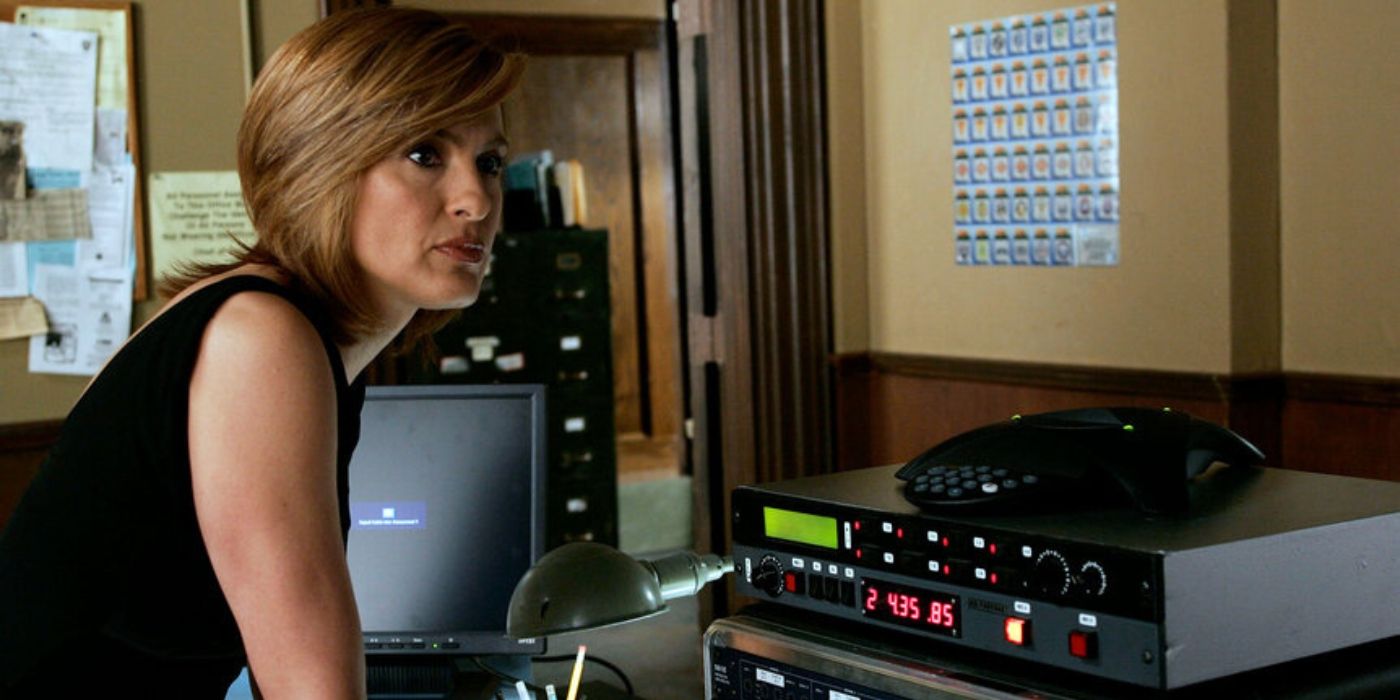 Season 7, Episode 3, “911,” consistently ends up on lists of the best SVU episodes. The episode primarily features Mariska Hargitay interacting with a voice coming through a speakerphone, a format that makes it unique. Hargitay won a Primetime Emmy Award in 2006 for her performance in the episode.
Season 7, Episode 3, “911,” consistently ends up on lists of the best SVU episodes. The episode primarily features Mariska Hargitay interacting with a voice coming through a speakerphone, a format that makes it unique. Hargitay won a Primetime Emmy Award in 2006 for her performance in the episode.
“911” opens with a dispatcher answering a call from a young girl who is hungry and needs help. Unable to figure out where she is calling from or get much information out of her, they patch the call through to the Special Victims Unit. Donald Cragen (Dann Florek) calls Olivia back into the precinct just as she is leaving to talk to the girl on the phone for a date. The girl introduces herself as Maria, and she hasn’t eaten in two days. The more Benson talks to her — standing in heels and her little black dress — the more Maria opens up, but they still can’t find her. Cragen pushes Benson to try and get more information out of her and Maria hangs up because Olivia doesn’t believe her. She calls back a while later, still hungry and scared. After several searches in different parts of the city and even having the girl hang up and call back again, Cragen and other members of the team are certain it’s a prank. Benson knows it’s not, but she has to get the rest of the team to believe her.
After bringing in a dialect expert who helps them figure out that the girl is originally from Honduras, Benson is able to get Maria to tell her more about how she came to New York, which is when Maria tells her that she was sold to a man named Richard and that he hurts her and takes pictures of her. Eventually, Cragen receives a photograph of Maria from the Honduran police. In a split second, Benson recognizes the girl’s face as having been sent around by Montreal SVU as part of a mailing about a child pornographer they can’t identify. Just as they think they’ll be able to get the technology to cooperate so that they can find her, Maria falls asleep, and her captor returns home. Benson tells him that she’s the police and they know where he is, and he tells her, in a teasing tone that will give anyone watching chills, “No, you don’t.”
Benson and John Munch (Richard Belzer) begin looking through photographs of Maria and eventually find a clue that leads Benson and Fin Tutuola (Ice-T) back to one of the areas Fin had already searched with a better understanding of where to look. Benson recognizes Richard based on information she got from Maria, and after interrogating him briefly, Benson and Fin pull Maria out of a shallow grave just as the episode ends. “911” is an episode that kept viewers on the edge of their seats and is still interesting to watch almost 20 years later, partially because of the technology aspect. At several points, Cragen and other members of the team are sure they should trust the cell phone tracking technology — still relatively new in 2005 — instead of what Maria is telling them, but Benson is handling the case strictly based on what she is getting from Maria. Without Benson refusing to believe what Cragen and Munch kept insisting was true, Maria would never have made it out alive.
Protecting Children is Deeply Ingrained in Olivia Benson
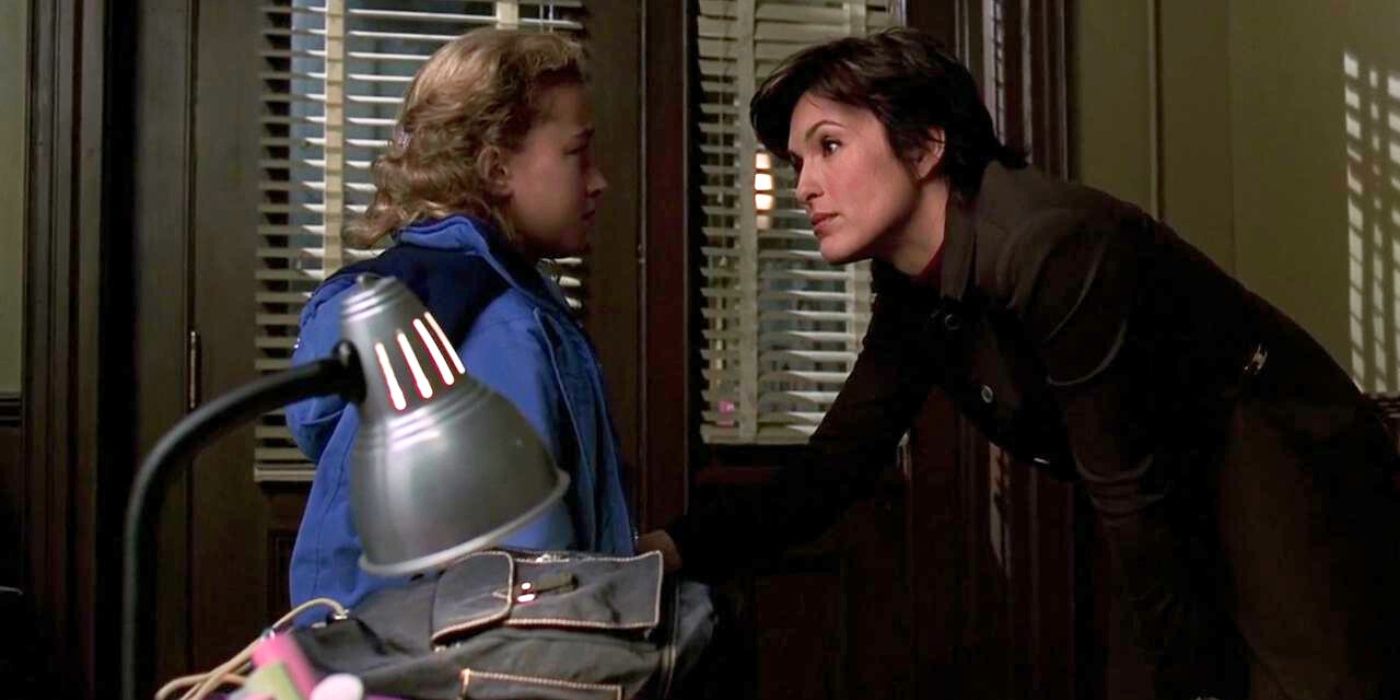
Throughout the early seasons of the show, Olivia often expressed wanting a child of her own. In Season 15, Episode 14, “Wednesday’s Child,” Olivia meets a baby on a case and later ends up fostering and adopting him.
Maria isn’t the first or the last child that Olivia Benson bonds with or saves from a terrible situation. In Season 2, Episode 11, “Abuse,” Benson connects with Ashley (Hayden Panettiere), a little girl who is being ignored by her parents and who has taken to harming herself to get their attention. Certain that she can fix things for Ashley, Benson pushes the parents so hard that she puts her job in jeopardy. In Season 20, Episode 3, “Zero Tolerance,” Benson rescues Gabriella Sosa (Scarlett Lopez) from a sex trafficker and discovers that she was separated from her mother at the U.S.-Mexico border. Benson attempts to arrest the ICE officer who separated Gabriella from her mother, but it’s way outside her jurisdiction. Peter Stone (Philip Winchester) eventually calls in a favor to get Gabriella reunited with her mother. Benson, at one point, tells Gabriella she needs to be strong — fuerte, she says — and it’s in nearly the same voice she used when talking to Maria Recinos. “Stay with me,” she told her, and when Maria said that she wasn’t actually with her, Benson said, “As long as you’re on the phone, you’re with me.”
Benson’s ability to connect with children is a gift, and it’s one she didn’t come by easily. As a child, her mother was both physically and emotionally abusive and, though physically present, essentially absent, struggling to cope with her rape and Olivia’s conception. As a result, Olivia was set on becoming two things: who her mother needed when she was sexually assaulted and who Olivia needed when her mother was absent. It colors how Benson interacts with children and other victims and makes her a better cop — even if she can get overly invested. When Maddie Flynn went missing in Season 25, Episode 1, “Tunnel Blind,” it could have been just another case were it not for Benson seeing Maddie with her abductor — before she even knew Maddie had been abducted. Benson blamed herself for Maddie’s disappearance, continually saying that she should have known Maddie was in danger just by looking at her.
There are two things at play here. The first, of course, is that after 25+ years of being a police officer, Benson believes that she should be able to tell when someone is in danger. It’s not unusual for anyone, police officer or not, to believe that they should be able to tell if someone needs help. Parents often express that they should have known someone wasn’t good for their child after something bad happens, and friends — particularly women — say something similar after one of their friends has been sexually assaulted. Benson believes this because she’s been working at SVU for so long, but it is impossible to tell if someone is in danger just by looking at them. The second thing at play is that if she is unable to protect someone, Benson believes she has failed at her primary self-concept. If she can’t keep someone from experiencing something bad, she cannot be who she needed as a child. When she perceives herself to have failed at protecting Maddie Flynn, it opens a floodgate that Olivia didn’t even know existed.
The Return of Maria Recinos
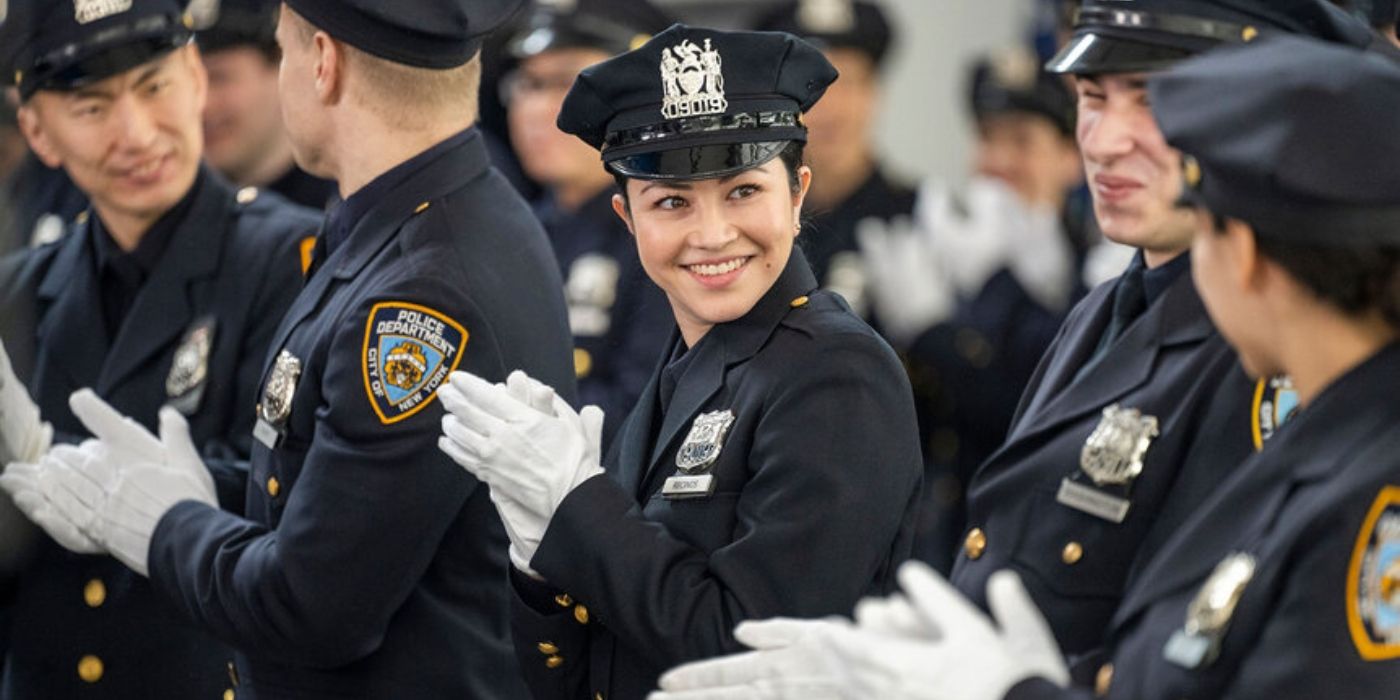 Rachel Diaz-Stand portrayed Maria Recinos in photographs and at the end of “911,” but the voice on the phone is that of Jeanine Monterroza.
Rachel Diaz-Stand portrayed Maria Recinos in photographs and at the end of “911,” but the voice on the phone is that of Jeanine Monterroza.
By the time SVU’s 25th season gets to Episode 7, “Probability of Doom,” Maddie Flynn has been found, but Olivia is still dealing with the mental and emotional fall-out. At the end of Season 25, Episode 3, “The Punch List,” Olivia visits an EMDR doctor for the first time, and audiences see her working with the psychologist in Season 25, Episode 4, “Duty to Report,” and then again in “Probability of Doom.” EMDR is a technique that is used to reprocess traumatic memories through eye movement, and, as any good EMDR doctor will tell you, it is impossible to predict what will come up throughout the process. In “Probability of Doom,” viewers will hear the psychologist say “go with that” to Olivia a couple of times, which is the psychologist’s only real way of interacting with the patient while using the technique. It signals to the patient that the psychologist is listening and wants them to keep talking about what they’re talking about, but it is very specific language that, ideally, does not interrupt what the patient is processing.
When Olivia begins processing the case with Maria Recinos, it’s a shock to her, though it shouldn’t be. Maria’s case is unique because while Olivia had her on the phone, she didn’t know where she was and couldn’t physically help her, nor could she stop Maria from experiencing what she had already experienced. Her thought process throughout the entire call was that, if she moved quickly enough, she might be able to prevent her from experiencing anything else. When they aren’t able to get to Maria before her captor returns, Olivia is unable to prevent her from being chloroformed and buried alive. She knew Maria was in danger and was unable to stop it. It’s the same reason the Maddie Flynn case became so hard for Olivia. Instead of coming in after the fact, unable to prevent anything but able to help her heal, Olivia saw Maddie and felt that she should have been able to stop anything from happening to her.
The psychologist’s recommendation to Olivia that she find Maria Recinos is complex. There is a lot to be said for not wanting to re-traumatize Maria or even Olivia, and Olivia could have found Maria and opted not to reach out to her. There is also a lot of good to be found in Olivia reconnecting with Maria. Olivia can see that Maria is okay, at least at face value. Maria (portrayed by Dani Montalvo in “Probability of Doom”) is about to graduate from the police academy with multiple awards and honors, and it’s clear at the graduation that she has people who care about her. Though Olivia is unable to connect with Maria at the graduation due to the case in “Probability of Doom,” it’s valuable for her to know that Maria can at least be perceived to be okay. Though Maria doesn’t express this to Olivia, there’s an assumption that Maria became a cop, at least in part because of Olivia. It would be unsurprising for Maria’s experience with Olivia to have inspired her to be Olivia to someone else, and, as a plot point, it would honor the work Benson has done for the last 25+ years.
Olivia Benson’s Probability of Doom
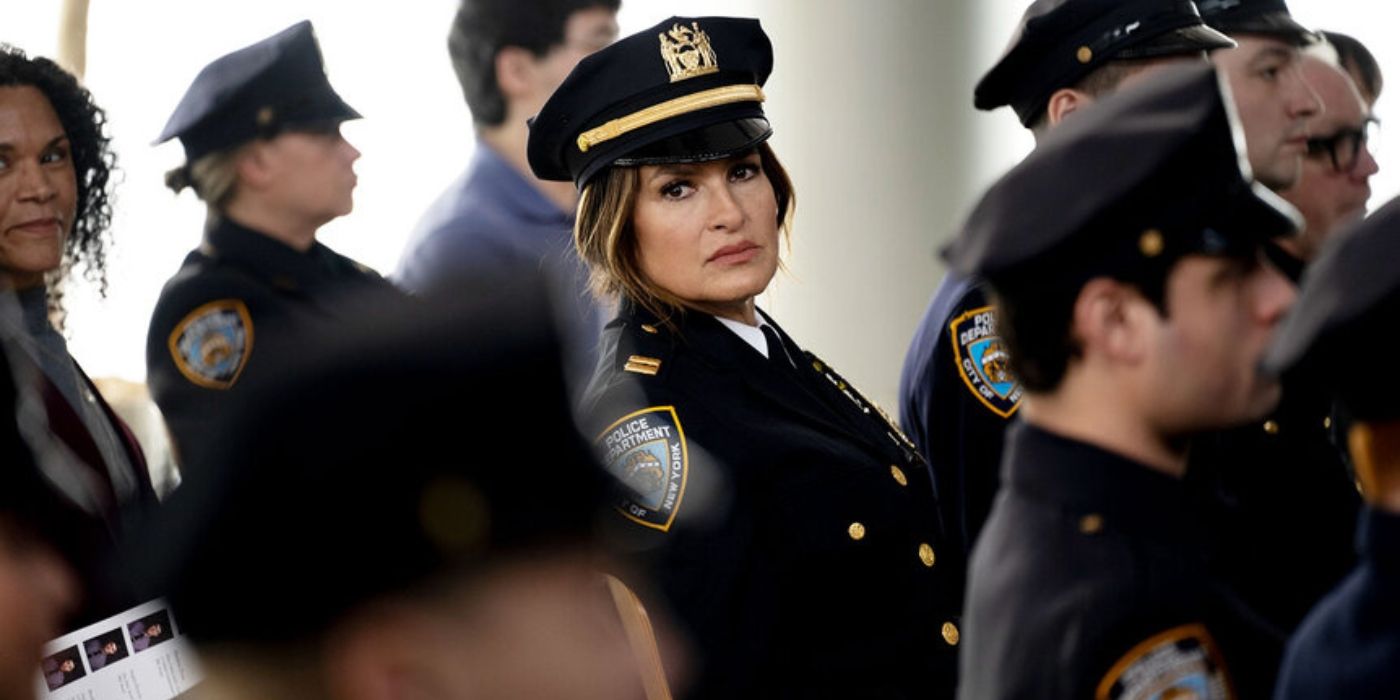 The case at the center of “Probability of Doom” plays an interesting role in the importance of Maria’s return to SVU. Though their experiences are quite different, Olivia understands what Tori Brock (Sarah Lynn Marion), the character who turns out to be both a victim and the person responsible for three murders, has been through. When Olivia is describing Tori’s fear about not knowing who would come home, “the man or the monster,” it is similar to comments she has made about her own mother, whose mental health and alcoholism made it so that Olivia could never trust that she was safe in her own home. Olivia, though nearly always considered brave and strong, has also always been afraid of who she would become based on who her mother — and father — were. Though Fin’s comments about Olivia being scared at the end of “Probability of Doom” are related to Tori Brock and Maria Recinos, what he says is true of many things in Olivia’s life. Her fear about the “probability of doom” when it comes to how she would be as a mother, what kind of person she is, and even whether she is in love with and would be happy with Elliot Stabler (Christopher Meloni) has made her nervous to move forward in certain ways, sometimes even preventing her from her own happiness.
The case at the center of “Probability of Doom” plays an interesting role in the importance of Maria’s return to SVU. Though their experiences are quite different, Olivia understands what Tori Brock (Sarah Lynn Marion), the character who turns out to be both a victim and the person responsible for three murders, has been through. When Olivia is describing Tori’s fear about not knowing who would come home, “the man or the monster,” it is similar to comments she has made about her own mother, whose mental health and alcoholism made it so that Olivia could never trust that she was safe in her own home. Olivia, though nearly always considered brave and strong, has also always been afraid of who she would become based on who her mother — and father — were. Though Fin’s comments about Olivia being scared at the end of “Probability of Doom” are related to Tori Brock and Maria Recinos, what he says is true of many things in Olivia’s life. Her fear about the “probability of doom” when it comes to how she would be as a mother, what kind of person she is, and even whether she is in love with and would be happy with Elliot Stabler (Christopher Meloni) has made her nervous to move forward in certain ways, sometimes even preventing her from her own happiness.
Olivia seeing Maria and finally getting to speak with her at the end of “Probability of Doom” won’t fix everything, but it’s a beautiful start. David Graziano and Nicholas Evangelista, who wrote the episode, laced it with enough tension that Maria’s reaction to Olivia in the episode’s final moments drove many fans live-tweeting the episode to tears. Their connection — however brief in 2005 — is something that clearly built both Maria and Olivia and getting to know who Maria is gives Olivia an interesting form of closure. Olivia closed the Maria Recinos case after pulling her out of that shallow grave and was able to pack it away in the box marked “finished” in her head. But what the Maddie Flynn case did was pull out some of those files and push Olivia to wonder if she actually did the thing she set out to do — if she actually was to Maria, whom Olivia herself had needed as a child. If the answer is yes, and it likely is, it reduces Olivia’s overall probability of doom. The opportunity to debunk her fear that she was not able to help Maria or that Maria became, as Fin so deftly put it, “a jerk,” opens the door for Olivia to squash other fears and allow herself to heal and experience happiness. And the probability of that is something any fan of SVU can get behind.

